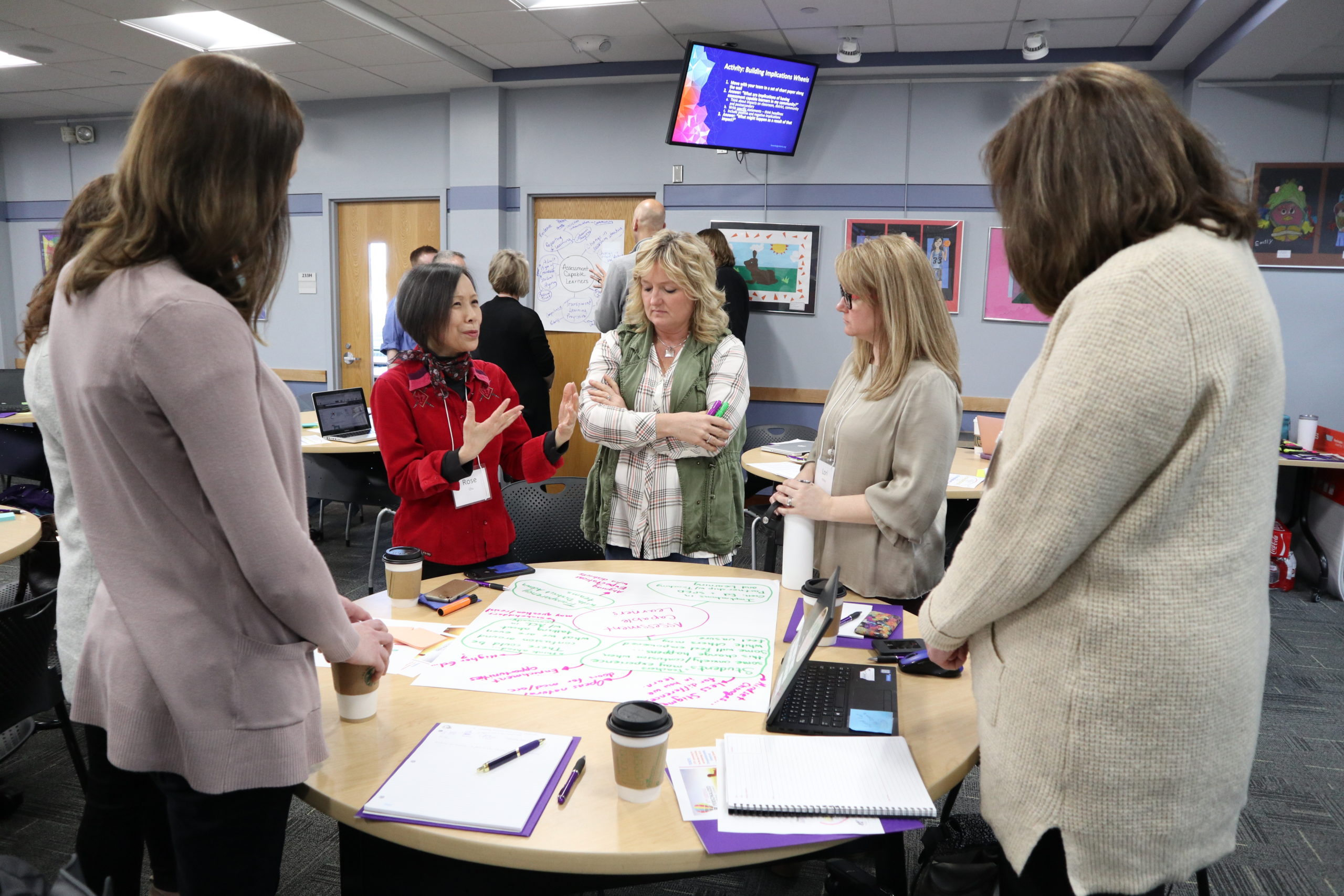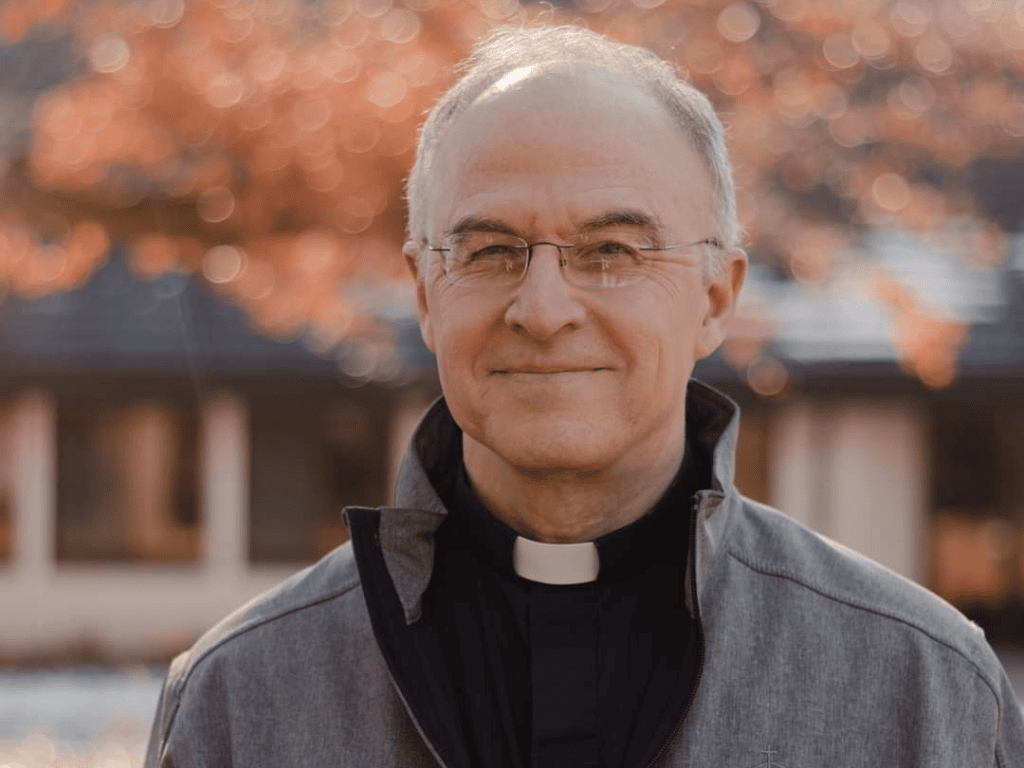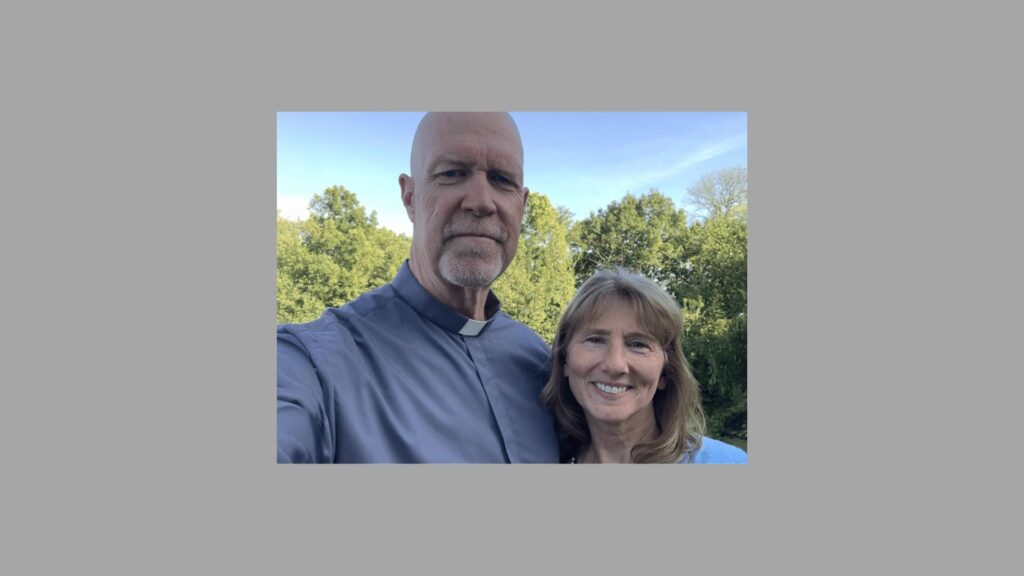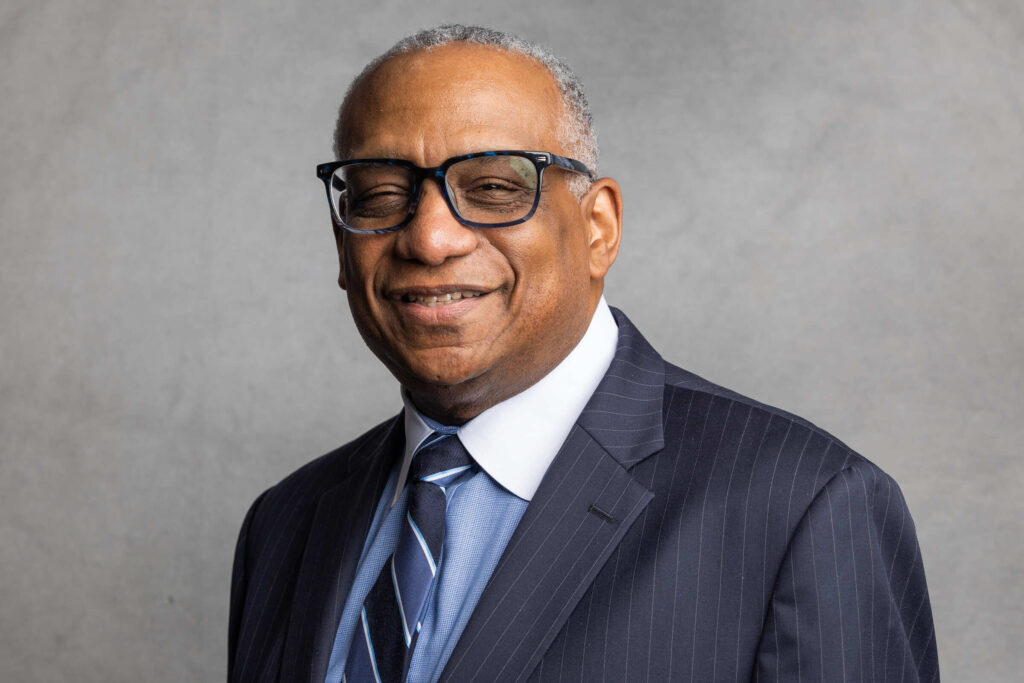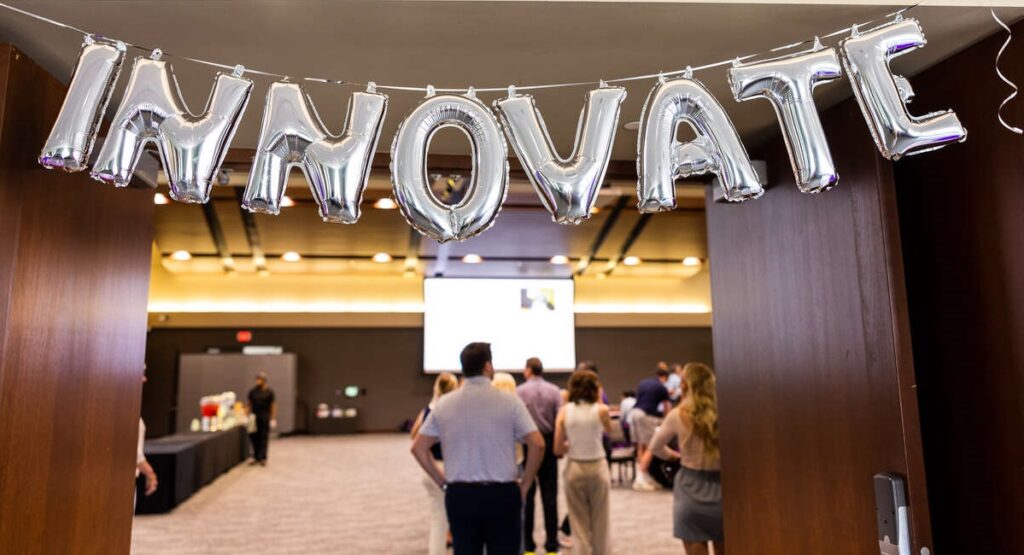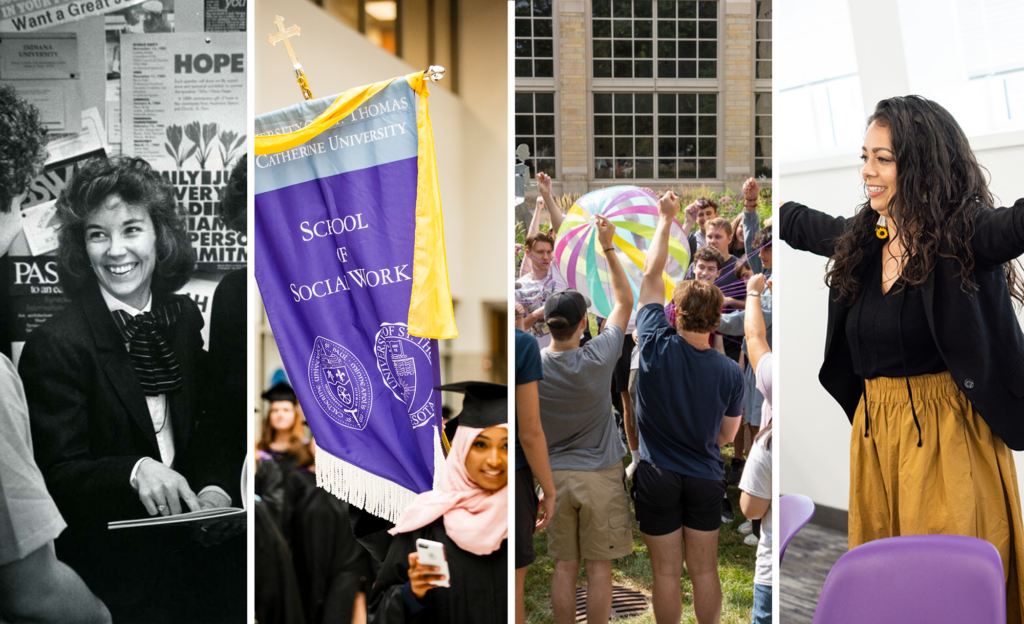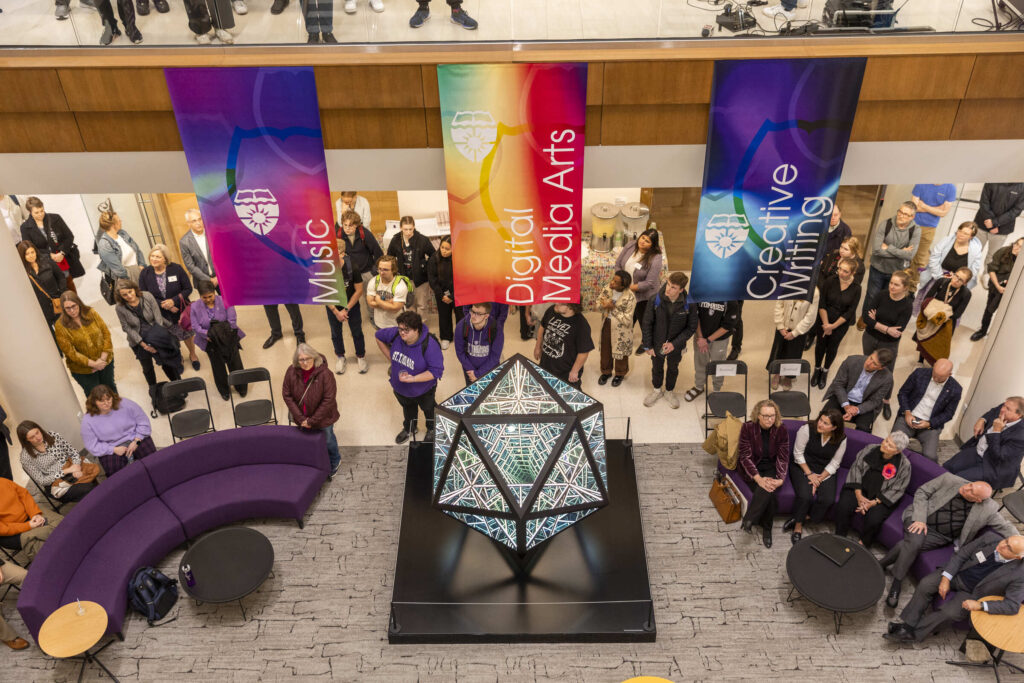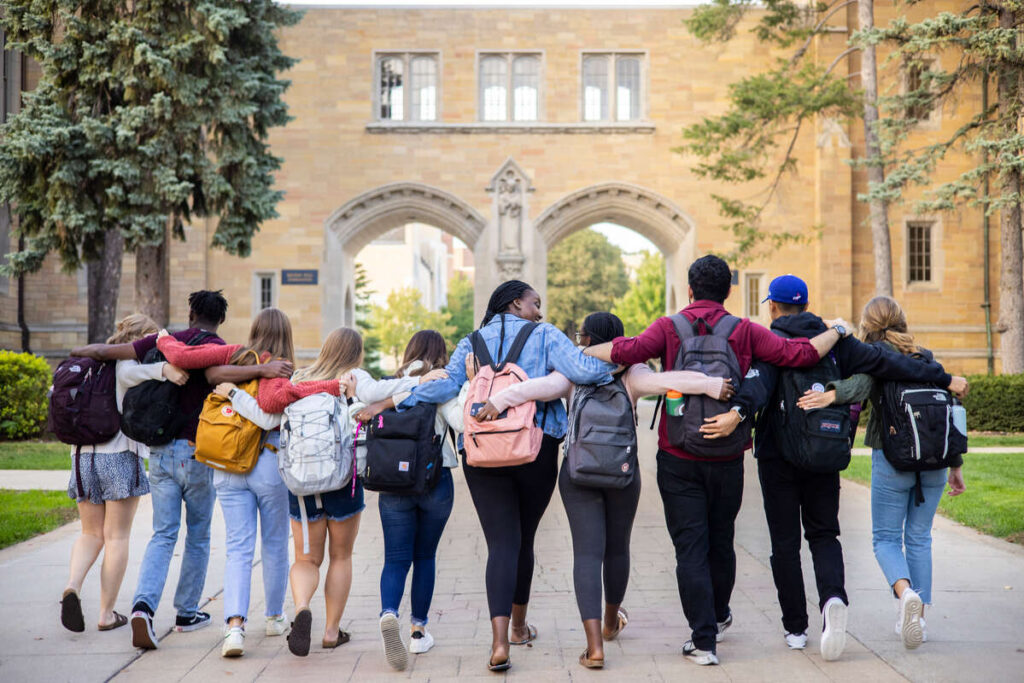On Wednesday, April 3, a group of leaders in the field of personalized learning came together for the 2nd Annual Conversations on the Future of Learning event at the Hopkins District Center. This invitation only event was organized by Associate Professor of Teacher Education Lucy Payne and Executive Fellow and Adjunct Faculty Member Tom Koch. When this event started last year, the University of St. Thomas was recognized as one of the first universities to partner with K-12 and national organization to collaborate on an event focused on student centered learning. Lucy Payne was also selected to discuss the future of learning at a KnowledgeWorks event in February. Her work has allowed the University of St. Thomas to emerge as a leader in this field and to work with school districts in meaningful ways for the future.
The school districts of Hopkins, Farmington, Edina, Eastern Carver County, Mahtomedi and SW West Central Services Cooperative each attended with a team of teachers, administrators, and/or school board members who were identified as leaders to take ideas back from the event to their respective districts. In addition the following organizations were also in attendance: the North Dakota Department of Public Instruction, Education Evolving, the University of North Dakota, KnowledgeWorks, and the Equity Alliance MN. All districts and/or organizations represented at the event had one thing in common: they all agreed to think deeply about the meaningful assessment of student thinking to enhance instruction and encourage student agency. The goal for each district or organization was to take what they learned at the event and apply it to their own individual contexts to make meaningful change in their own spheres of influence.

Dr. Tom Koch pictured standing, presenting to the group
The day began with an opportunity for networking, followed by a large group discussion titled "Assessment: Implications for Personalized Learning" presented by Lori Phillips and Anne Olson from KnowledgeWorks. At lunch, attendees were asked to discuss the following questions:
- How can assessment empower students to develop greater agency in their own learning?
- How do we need to think differently about instructional design and assessment to cultivate student agency?
- What are the quality measures you’re developing that reflect an emphasis on growth and learning?
- How are you communicating your quality measures to various groups (students, families, other stakeholders)?
After lunch, individuals were able to attend breakout sessions on the topics of Student Involvement and Assessment presented by KnowledgeWorks; Using Rubrics for Assessment of Learning presented by Farmington Public Schools; or Conversation on Communicating Students' Learning presented by the University of St. Thomas. After the breakout sessions, individuals were put in action teams by district or organization and asked to think about how to apply things they had learned into action in their districts or educational setting.

Lori Phillips and Anne Olson (both from KnowledgeWorks) review the day's agenda with participants.
Dr. Payne has noted that the event has evolved and will continue to change and grow each year as new topics come to the forefront. Last year the focus was a broader focus on student-centered learning and competency-based education. Many of the same attendees returned to build on this knowledge with this year’s focus on assessment. In the future, student centered learning will continue to be an area of discussion and the focus will depend on the responses of the groups involved. Payne and Koch hope to continue this event. They are in ongoing discussions with partner districts to determine the emerging topic for next year.
